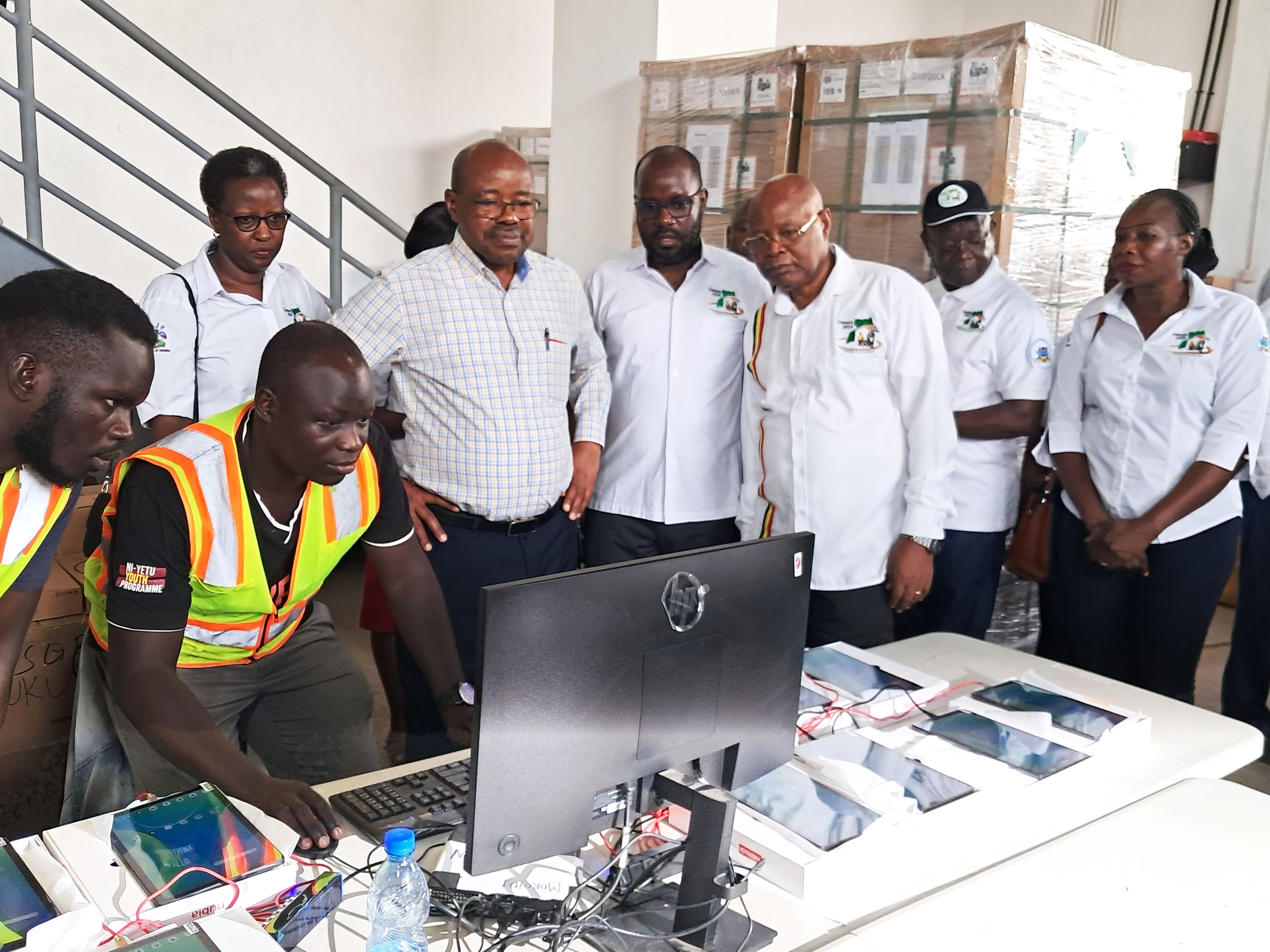Report pins UPDF officer, prisons on rights abuse

Supporters of National Unity Platform Party president Robert Kyagulanyi and local and foreign journalists are assaulted by Military Police outside the UN Human Rights offices on February 17. PHOTO | AFP
What you need to know:
- Torture. Torture and inhumane treatment has remained a common occurrence in many prison facilities around the country. The Uganda 2019 Human Rights Report for instance stated that conditions in prisons and other detention centres remained harsh and in some cases life-threatening. Some of the problems it captured included physical abuse of detainees by security staff and fellow inmates, inadequate food, and overcrowding.
A Human Rights Focus report released on Tuesday has pinned a senior UPDF officer and the Uganda Prisons Service (UPS) over grievous human rights violations and killings in Acholi sub-region.
Disclosing findings captured over a three-year period, Human Rights Focus executive director, Mr Francis Odongyoo, labelled the acts of torture, allegedly overseen by the officer at the UPDF 4th Division in Gulu, as the worst.
The report indicates that the incident occurred on June 21 when UPDF soldiers — reported to be acting on the orders of Lt Col Hillary Onekalit — gruesomely beat and injured a 36-year-old man identified as Emmanuel Olanya in public.
The beating was captured on camera, and locals could be heard pleading with the soldiers to spare the victim
However, the UPDF spokesperson, Brig Flavia Byekwaso, said she was not aware of the matter.
But a source at the 4th Division army headquarters, who declined to be named due to the sensitivity of the matter, said Lt Col Onekalit was summoned by the division administration for disciplinary action.
Other incidents
The report also named Kineni prison in Pader as the worst detention facility in Acholi sub-region.
It is reported that three inmates died in the prison under unclear circumstances.
According to the report, the inmates were “allegedly tortured to death while in detention.”
However, post-mortem reports indicated that the inmates died of malaria ( David Ojok) and diarrhoea ( Dominic Anywar), much to the dismay of their relatives.
Hardly a month after the duo’s death, another inmate Bosco Okello was tortured to death after unsuccessfully attempting to escape.
A post-mortem indicated that some of the fatal injuries Okello incurred included a broken neck.
He was reportedly tortured by a fellow inmate Kenneth Lubangakene and a prison officer only identified as Tumwine.
Whereas President Museveni recently condemned torture in prison facilities, Human Rights Focus said they have continued to document several instances of torture and killings carried out with the knowledge of prison authorities inside the facilities.
In 2015 when a 19-year-old inmate identified as Brian Opiyo died under the care of Gulu Central Prison, a police post-mortem report attributed Opiyo’s death to “hepatic encephalopathy, hepatitis and organic functional disorder.”
But Mr Odongyoo revealed that “a professional government pathologist” later attributed Opiyo’s death to “respiratory failure due to lung shock arising from physical injuries he sustained.”
Court later ruled that the police post-mortem report had been authored by an anaesthesiologist and not a pathologist as recommended.
In a June 8 ruling, it was declared that Opiyo “died as a result of negligent acts of prison warders, the servants of the defendant.” Also on June 28, Joe Okot Otara, a suspect on remand at Nwoya prison, was reportedly tortured to death at Delight Farm. Okot was driven to the farm with at least 40 other inmates to offer labour.
While police put Okot’s cause of death down to a coronary artery occlusion and cardiac arrest, a post-mortem report captured “bruises on the left clavicle, chest, abdomen, both knees and legs as well as on the anterior plane of the body.”
Mr Isaac Aruo, the officer in-charge of Anaka Prison, said Okot fatally fell off a truck after his fellow inmates had gone to collect firewood.
In ruling out torture, Mr Aruo said the bruises the deceased sustained were from a fit he experienced before his death.



